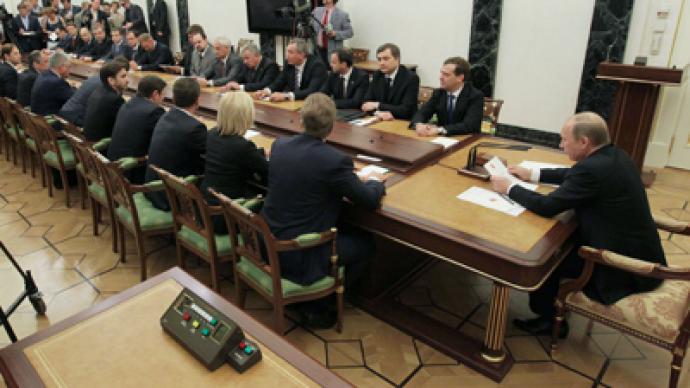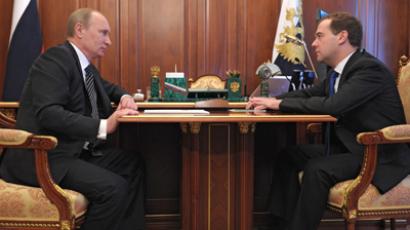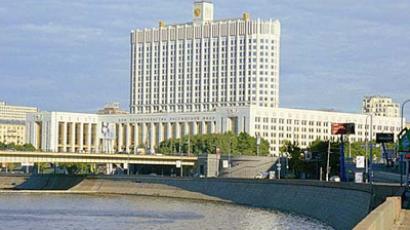New government elite – 7 deputy PMs

The new cabinet will have seven deputy prime ministers, but only one of them will be the first deputy: Igor Shuvalov.
Igor Shuvalov
According to media reports, Shuvalov will oversee the whole financial sector, privatization operations and housing construction – the branches of economy that the Russian leadership considers most important.
Shuvalov has worked as first deputy PM since May 2008. He also worked as board chairman of Sovkomflot – Russia’s major shipping company until 2010, when it was prohibited for state officials to occupy executive positions in commercial companies. Shuvalov has a degree in law with a thesis on government’s role in lawmaking.
Vladislav Surkov
Vladislav Surkov remains deputy prime minister and gets the post of the head of the government’s staff.
Surkov worked in the presidential administration from 1999 and was deputy head of this body from 2004. He was responsible for relations with political parties and public organizations and was relieved from this post in late December 2011, after the parliamentary elections and mass protests against the allegedly-rigged vote and many observers suggested that Surkov’s dismissal was the authorities’ sign to the opposition that they were ready for talks and cooperation.
Surkov is considered the author of the “Sovereign Democracy” concept – the strategy of Russia’s development in accordance with major democratic principles, but with minimum foreign influence at its political structures.
Dmitry Kozak
A longtime Vladimir Putin ally with legal training and background, Dmitry Kozak worked in the Presidential Administration from 2000 as one of the deputies to the head of this structure. He became presidential plenipotentiary in the Southern Federal District from 2004 till 2007, when the terrorist threat from the Caucasus was especially strong. Kozak was successful in this position and was promoted to the Minister of Regional Development and in 2008 – to deputy prime minister. Given Kozak’s experience and ties, he also became the head of the commission that coordinated Russia’s preparations to the 2014 Olympics in the South Russia’s resort of Sochi.Aleksander Khloponin
Khloponin started his career in business and in mid-90s, becoming chairman of the Russian metals giant Norilsk Nickel. In 2001 he was elected governor of the Taimyr Autonomous Region and in 2002 – the governor of the Krasnoyarsk Territory (the place where most of Norilsk Nickel’s assets and enterprises are located).
He remained in this position till 2010 when he was appointed deputy prime minister and presidential plenipotentiary to the freshly-formed North Caucasus Federal District. Khloponin is an active member of the United Russia party and the Terek Cossack Troops.
Dmitry Rogozin
Rogozin retained the post of deputy prime minister in charge of the defense sector which is not strange as he has just received this position and only just begun to establish the control over the sphere. Before that Rogozin worked for a long time as Russia’s envoy to NATO and became well-known for his flamboyant and provocative statements made mostly on the Twitter microblog.
Rogozin is also a seasoned politician, with such projects as the moderate nationalist party Rodina and the public organization Congress of Russian Communities, which defends the interests of ethnic Russians abroad.
Arkady Dvorkovich
Arkady Dvorkovich worked as an aide to the president before his appointment to the government, advising mostly on economic issues. Dvorkovich is a trained economist who worked in think tanks and, from 2000, in power structures – first as an aide to the economy minister and then to the president.
Since 2008 he also worked as presidential representative for ties with the leading industrial nations and the Russian Sherpa to the G8. Dvorkovich was one of people behind the idea of the national modernization center in Skolkovo (and he sits in the Skolkovo workgroup and sponsor committee) and the secretary of the Russian Commission for Technological modernization and development.
Olga Golodets
Golodets is also a professional economist who started her career at Norilsk Nickel. She worked there from 1999 till 2008 managing human relations and social policies and leaving the company in the position of deputy general director. In December 2010, Golodets became deputy Moscow Mayor for healthcare and education.














